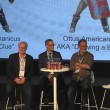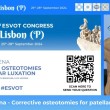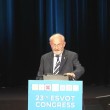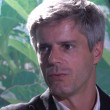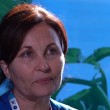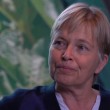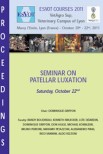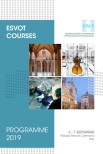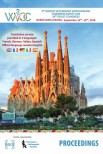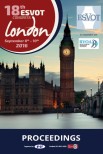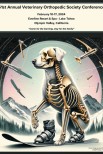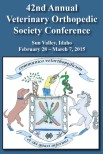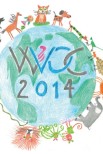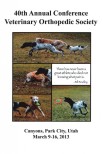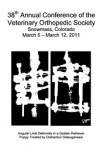David Gareth Clayton Jones
BVetMed DVR DSAO MRCVS - UK
B.Vet Med. Royal Veterinary College London 1965
MRCVS 1965
RCVS Diploma Veterinary Radiology DVR
RCVS Foundation Diploma in Small Animal Orthopaedics DSAO
RCVS Honorary Fellowship awarded 2008
Employment
House Surgeon in Dept of Veterinary Surgery Royal Veterinary College Field Station Potters Bar 1965 to 1968. This involved all species of patient and all surgical specialties.
Lecturer in Dept of Surgery, then Senior lecturer and additionally Director of Queen Mother Hospital for Animals 1986.
1990 left academia to become partner in Mixed practice in Kent, primarily to run a referral practice in Surgery (Orthopaedics) and Radiology including being a Radiation Protection Adviser. This was mostly Small Animal but when on general practice emergency duty in the first few years I also dealt with Large Animals and Horses. I ceased to do the GPO work after a few years as the referrals became busier.
I retired from the partnership in 2007 but continued to see cases in the practice and in two practices in London. I currently see cases in London one day a week.
I initially became a vet by chance. No history of animals/ farming in the family and no pets but I was always interested in animals. In the sixth form Biology set 5 of us ( probably called last grade now) one man wanted to become a doctor, one a dentist, so I thought being a vet might be interesting ! the Dr became a professor of Gynaecology – now lives in Australia; the dentist became a Dentist after a struggle and stayed in Wales. One man arrived during those school years who really wanted to be a vet – he knew everything about vetting – much more than me and was very committed. However he failed to get into vet school became a pharmacist and ended up Bankrupt – no justice I think!!
Having got into vet school I coasted along – no medals but became interested in Surgery , During seeing practice I did quite a few ops alone for the vet in Anglesea. Medicine seemed far too difficult and Pathology too boring. In 1965 very few people wanted a House surgeon job – compare that to the rush for internships now! The Medicine prof kept asking myself and others - (anyone ! ) would take the House job in medicine. In the end the existing incumbent stayed on. I had the internship (house surgeon) effectively an assistant lectureship. The job was residential, meals provided, alternate nights and weekends on duty. You just did what came in. If it was surgical and the medicine man took it in, I still did the op as needed. After a cold round of the horse boxes on winter nights, the assistant warden made us hot toddy.
That is how I began to do equine surgery and I was one of the first to do equine colic surgery in the UK. I opened the discussion at a BEVA Conference in about 1968 - by then we had done about 30 to 40 cases. I also started internal fixation of equine fractures. First case was a P1 fracture with lag screws using Sherman screws. Horse recovered and went back to work as a riding school horse – Equine Vet Journal Vol 1 No 1! Another case an os calcis Fx in a pony – two partial threaded AO screws and tension band wire - healed fine but owners decided they didn’t want the horse back - so I took it home and my daughter learned to ride on it!
Vet school departments were small in the 1970s - about 60 students. At the field station there were Prof Clifford Formston ( he had become the youngest prof of surgery in 1929), Leslie Vaughan, Derek Tavernor, Gordon Baker and myself. Prof Geoff Arthur in Reproduction, in the same Dept. Two other staff members Gordon Knight and Bob Frost worked in London at the Beaumont Animal Hospital with another two housemen. These were very happy times – surgery was moving quickly and I remember the thrill of hearing about the first human heart transplant. I became involved in cardiac surgery working with human medics and began doing most of the chest surgery at the London school by the time I finished.
All the staff were very supportive - if we wanted to try something new, no one said no. All of them played very significant roles in my career. Of course Les Vaughan and I became very close and we kept in touch even after I left the RVC and I was very honoured to give the eulogy at his funeral and I still present his prize annually at BVOA . Les and I operated to produce the first germ free pigs and calves for PC Trexler in the path unit. We were very amused to be doing this as orthopods, instead of the reproduction dept! The animals were delivered sterilely into an isolator – technology now used to transport / manage patients with Ebola. The vets were there at the beginning!
Outside the RVC, Dieter Prieur became a great friend and it was he who introduced me to the AO. This was a fantastic organisation through which I met so many influential people around the world – including you Geoff. He and I started annual practical student courses at the RVC to which we invited all the final year students in England - bussed in , one day for each vet school. This was regularly accorded ‘best day of the course ’ by the students. ( current numbers would now preclude this ).
Becoming the first AO Vet President from the UK in1988 was also a great honour and I was privileged to visit many countries for courses.
In practice, I was very fortunate to have Nick Mills as a partner. He was a great and amusing man with a fount of ideas - his premature death robbed our profession of a character. His obituary in a national paper described him as the Sex Therapist for horses!
Overall I have to class myself as a bit of a drifter. My career seems to have just developed without any planning of my own. I admire those who know exactly where they are going and what they want to achieve. I have a number of other interests as I enter almost full retirement - children, grandchildren and of course my wife, Joan who has been a huge support. In case I cannot cope with retirement, I have embarked on a Diploma course in the History of Medicine which should keep the brain cells active for the foreseeable future.
